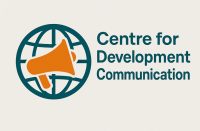Having been active on the field for 15 years, I have observed a pattern in development practice. A greater number of practitioners approach solutions to development intervention on the assumption that they are experts, while targeted communities are considered illiterates who know little or nothing. In Nigeria, we simply assume them as illiterates.
In my work with researchers and NGOs on interventions targeting climate change mitigation and adaptation among the rural people, I consistently remind them to recognise indigenous Knowledge Systems in determining what we consider illiteracy.
In several fieldworks with NGOs and researchers, I constantly remind them that as development practitioners in Africa, we must be intentional in deconstructing the narrow, Western definition of literacy that dominates mainstream discourse. Judging communities and individuals as “illiterate” simply because they lack formal education is not only incorrect but also profoundly disrespectful.
I often explain to NGOs and researchers I work with that labelling individuals and communities as illiterate because they do not have English literacy or formal education is a disregard to their rich indigenous knowledge systems that have been cultivated and passed down through generations.
I always point out to NGOs and researchers that rural communities we often look down on as people who are illiterate and know nothing, possess deep-rooted indigenous knowledge systems intimately connected to their environment, cultural heritage, and social structures.
At the same time, their expertise in agriculture, medicine, natural resource management, conflict resolution, and spirituality reflects a sophisticated understanding of their environment, and solutions to issues affecting them make them hugely knowledgeable. They are not only knowledgeable but are critical resources and stakeholders in the design and implementation of interventions targeting them.
I strongly advise NGOs and researchers in the field that consider communities and individuals “illiterate” because their knowledge is not written down or taught in conventional institutions simply ignore the legitimacy of oral traditions, experiential learning, and non-Western ways of knowing. I consider this not only a misrepresentation of who they are, but a misrepresentation of their knowledge.
I urge that NGOs, researchers, policymakers, and academia begin to recognise, respect, and promote indigenous knowledge as a legitimate and vital form of literacy and intelligence. Rural communities must be engaged to actively participate in issues affecting them, as they have local expertise for solutions that are most appropriate to their problems.
True development begins with humility by valuing the knowledge communities already hold and co-creating solutions rooted in that knowledge. It is not about privileging a few who view development only through their own lens, but about building partnerships grounded in mutual respect and diverse ways of knowing.
